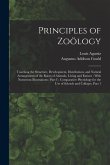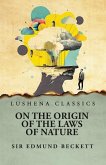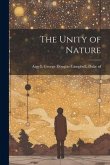I wish that you could have seen the edge of the snow-cloud which hovered, oh, so soothingly, down to the grand Pilot Peak brows, discharging its heaven-begotten snows with such unmistakable gentleness and moving perhaps with conscious love from pine to pine as if bestowing separate and independent blessings upon each. In a few hours we climbed under and into this glorious storm-cloud. What a harvest of crystal flowers and what wind songs were gathered from the spiry firs and the long fringy arms of the Lambert pine! -from "Yosemite, [1871]" Perhaps the most important of the founders of the modern conservation movement and an immense influence on animal-rights philosophies, John Muir was a champion of the preservation of unspoiled wilderness. His studies and surveys of Yosemite Valley and the Sierra Nevada mountains in the late 19th century-and his love of their untamed beauty-led directly to federal protection of vast ranges of virgin Western lands. This collection of letters Muir wrote as a university student in the 1860s and '70s to his "spiritual mother," botanist Mrs. Ezra Carr, offer a fascinating look at the legendary naturalist as a young man. Dispatched mostly from Yosemite Valley, where he was working as a sheepherder, they reveal the shaping of the philosophies that would later dominate Muir's work. A legend of the American West and the careful guardianship of the environment-as well as the freedom the natural world represents-Muir's writings are must reading for anyone who appreciates the wild splendor of our planet. Also available from Cosimo Classics: Muir's Studies of the Sierra, and Steep Trails. OF INTEREST TO: fans of John Muir's life and work, armchair naturalists AUTHOR BIO: Scottish-American naturalist, explorer, and writer JOHN MUIR (1838-1914) helped found the Sierra Club in 1892, and served as its first president. He wrote numerous articles for such publications as Atlantic Monthly, Harper's, and the New York Tribune; among his many books are The Mountains of California (1894), Our National Parks (1901), The Yosemite (1912), and Travels in Alaska (1915).








